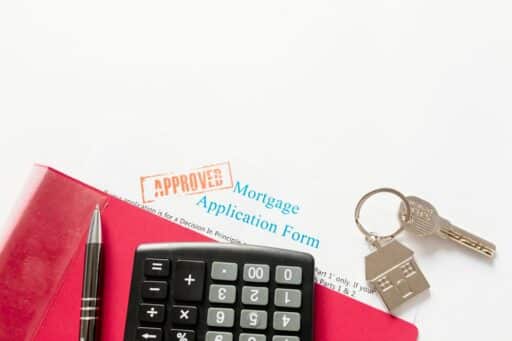In this article, we’ll look into finding foreclosures and distressed property for sale in the UK to aid those interested in real estate investment, particularly in this area.
If you want to invest as an expat or high-net-worth individual, which is what i specialize in, you can email me (advice@adamfayed.com) or use WhatsApp (+44-7393-450-837).
Foreclosed vs distressed properties UK
In the United Kingdom, properties labeled as “foreclosed” or “distressed” represent real estate assets facing various forms of financial hardship or distress. However, these terms carry distinct implications and correspond to different stages within the distressed property cycle.
Property foreclosure definition
Foreclosed properties, also dubbed “repossessed” properties, have already undergone the foreclosure process. The lender repossesses the property after the owner defaults on mortgage payments. Lenders or third parties (like banks) own the property.
Lenders or banks often use real estate brokers or auctions to dispose of foreclosed properties, which is the second step in the sales process. Common names for these residences include bank-owned and REO (Real Estate Owned).
Foreclosed properties typically have clean titles because the lender has taken possession of them to recoup unpaid debts. But you must do your homework to make sure there are no undiscovered encumbrances or legal problems with the property.
Distressed property meaning
First, in terms of ownership, distressed properties are buildings whose owners are experiencing financial difficulties or who are at risk of losing their home to foreclosure. The owner of a foreclosed home or other property still has legal title.
Distressed properties can be sold through several channels, including regular property listings, short sales, or direct discussions between the owner and a buyer. The owner may be eager to close a rapid deal in order to solve their financial difficulties.
The property’s title and legal standing may be in question; nevertheless, these challenges may not be as severe as with foreclosed homes.

Buying foreclosed homes
How to find distressed properties UK, foreclosures
Although they do exist, foreclosed and distressed properties may be harder to come by in the UK than in other markets. But if you employ the correct methods, you can learn the ropes of how to find foreclosed properties in the country.
Consider the following steps:
- Contact local real estate agents who focus on foreclosed and bank-owned properties as a first step. They could know where to find such properties or when they will be put up for sale.
- Look into a list of distressed properties on the internet that provide bank-owned and other types of troubled homes. Listings for such homes could be found on websites like Property Investor News.
- Public auctions are a common venue for the sale of foreclosed homes. Find local and national real estate auctions to attend. Properties up for auction can be seen on the websites of auction houses. Google for websites that host real estate auctions, including those that sell off bank-owned and other types of repossessed properties.
- Locate notices of foreclosure houses for sale and distressed property sales by perusing local newspapers and classified advertising. Auction ads or announcements might be found in these periodicals.
- Participate in online real estate communities and forums geared at the UK market. Distressed property opportunities can be discussed, and members can contribute their knowledge and experience.
- Hire a specialized agency or a company that specializes in foreclosed and auctioned properties. Some businesses offer a dedicated service of matching potential buyers with sellers of investment properties.
- As a step in expanding your real estate network, you should frequent industry functions including seminars, mixers, and other social events. Possibilities may be discovered through networking.
- Get involved with, or at least make connections inside, a real estate investment club or association. Members of these clubs frequently discuss opportunities in the foreclosed real estate market with one another.
- Inquire at any local banks or mortgage lenders about any foreclosed properties for sale UK. You can see listings for these homes on the websites of some banks.
- Some real estate agencies may have dedicated departments to handling real estate owned (REO) by financial institutions. You should get in touch with real estate agents offering such services.
How do you buy foreclosed homes in the UK?
There is a precise process and set of factors to take into account when buying a home that has been repossessed in the UK.
- As a first step, do some in-depth research into the UK real estate market to find neighborhoods and home kinds that suit your needs. Create a spending plan and investigate potential sources of funding to ensure you’re in a position to show proof of cash or acquire mortgage pre-approval. Consult with accountants and lawyers who have experience with real estate deals in the UK.
- Locate the foreclosed houses you’re interested in buying. You may do this using a variety of methods, including the real estate websites, auction websites, and specialist estate agents. Keep a watch on public notifications in local newspapers or online media, since they may herald forthcoming foreclosure auctions.
- Perform an inspection and due diligence on the property to see whether or not any repairs or modifications are necessary. Perform exhaustive research into the property’s history, title problems, and outstanding liens and encumbrances.
- Foreclosed homes are often sold at auction, and the auctioneer’s website will have listings and information about the auction. Attend real estate auctions in person or online, and bid competitively while sticking to your budget. Familiarize oneself with auction rules, comprising deposit requirements, auction fees, and payment conditions.
- Following a successful bid, move to the next step: negotiate and purchase agreement. Work with your attorney to draft a purchase deal that specifies all of the sale’s terms and circumstances. Make sure there is a clear deadline for the purchase’s conclusion in the agreement. This methodical strategy will equip you to deal with the complexities of buying foreclosed homes in the competitive UK real estate market.
- Obtain a property survey as soon as possible to determine the building’s current state and what maintenance is really necessary. At the same time, check the property’s estimate to make sure it fits in with your plans and your financial plan, as well as the current market worth.
- Get the money together for the down payment, closing costs, and any renovations you plan to do. Adhere to the requirements set forth by lenders or financial institutions for a successful financial transaction.
- The acquisition agreement specifies the completion date as the day on which the acquisition will be completed and settled. On this day, complete the transfer of the whole amount to the seller or auctioneer. Make sure you have a legally binding transfer of ownership and title.
- Begin necessary renovations or repairs to make the property liveable or marketable. Pay all taxes, fees, and premiums associated with owning and maintaining the property, as well as all other financial commitments.
- Seek help from specialists throughout the process to be proactive. To guarantee a smooth and legal transaction, work with solicitors, real estate agents, property surveyors, and financial consultants. Their knowledge will help you navigate post-purchase considerations and buy a property.

Are foreclosed homes cheaper?
Certainly, foreclosed homes in the UK frequently come with a lower price tag compared to other properties, often listed below market value. The rationale behind this pricing strategy lies in the urgency of lenders to swiftly remove these homes from their portfolios. The aim is to expedite the sale process and mitigate financial losses.
However, foreclosed home prices vary. The property’s location, condition, size, and market competition might affect the price. To make informed judgments in the dynamic foreclosed property market, purchasers should carefully evaluate these variables.
How to determine the value of a foreclosed property in the UK
Knowing how much a UK foreclosure is worth is essential for making a good investment decision. Start by looking at online property listings on sites like Zoopla to get a feel for the market and learn about the property’s estimated value, past sales data, and nearby comparable transactions.
Additionally, consider engaging a trained and independent property assessor or surveyor to undertake a complete examination of the property’s condition and fair market worth, especially if you expect to acquire financing. Get in touch with local realtors or property appraisers to learn more about the current market conditions and how they can impact the property’s value.
Investigate the area by checking its safety, conveniences, schools, transit options, and potential future changes that could affect property prices. Assess the property’s condition, including the cost of repairs or renovations, and compare it to recent sales of similar properties in the area.
Be sure the property has a clean title without liens or encumbrances, as legal concerns might lower its value. Stay informed on local market conditions like supply and demand, interest rates, and economic dynamics, which can affect property values.
Attend auctions or check internet sales data to estimate the property’s value before auction. Monitor local market trends for property appreciation or depreciation. Ask experienced real estate agents and solicitors about foreclosed property values and legal issues.
The circumstances of the foreclosure and the lender’s motivation to sell can greatly affect the value of a foreclosed property. Be prepared to negotiate with the bank or financial institution seller during the acquisition. This bargaining procedure is necessary to get a fair price that takes into account the foreclosure status. Knowing how to negotiate in this environment helps you secure the foreclosed home at a fair price.

What are the benefits of buying foreclosed, distressed homes in the UK?
- One benefit of purchasing a foreclosed home is the possibility of receiving a price reduction, allowing the buyer to obtain real estate at a rate lower than the property’s current market worth. This affordability can make repossessed properties an enticing option for budget-conscious buyers.
- Foreclosed properties UK offer investors the chance to profit from both appreciation and rental income. Long-term investors who are considering these properties have a lot of good options to choose from.
- Potential buyers of foreclosed properties can select from a broad range of residences, business spaces, and raw land. This kind permits the formation of a diversified property portfolio.
- In addition to the various benefits listed here, purchasing a foreclosed home can give you access to the market and allow you to invest in real estate even if you previously couldn’t because of financial constraints.
- The acquisition procedure for foreclosed homes is sometimes sped up, especially when acquired through auctions, making it a faster alternative to traditional property transactions.
- Buyers may have some space for negotiation, particularly with motivated sellers like banks or financial organizations looking to quickly unload distressed houses.
- A buyer may face less intense competition while acquiring a foreclosed property, especially if the property has unusual or difficult features.
- A chance for instant equity exists when purchasing a foreclosed property at a reduced price, especially if the property’s market value increases over time.
- Foreclosed homes can be found in various areas, giving purchasers more freedom to find a property in a place that best suits their needs and financial goals.
- For investors who don’t want to live in the house, the rental income from a foreclosed home is a great source of passive income.
- Some buyers love the process of renovating or enhancing properties. Properties that have been foreclosed on provide a great chance to increase their value through well-planned renovations.
- Foreclosure property buyers might do their homework by researching the property’s past to uncover any problems that may have arisen since the foreclosure.
- Participating in property auctions, where many foreclosed properties are offered, provides buyers with a varied choice of investment possibilities and possible acquisitions.
What are the risks of buying foreclosed properties in the UK
Venturing into the acquisition of foreclosed properties in the UK presents potential advantages, yet it is accompanied by specific risks and challenges that necessitate careful consideration before making an investment. Understanding these risks is crucial for prospective buyers.
Here are some common challenges associated with purchasing distressed and foreclosed properties in the UK:
- Foreclosed properties may suffer from neglect or poor maintenance, requiring substantial repairs and renovations that can escalate the overall cost of the property.
- Foreclosed properties might have a history involving disputes, legal issues, or title-related conflicts. Thorough due diligence is essential to uncover and address any such issues.
- Accessing foreclosed properties for comprehensive viewing may be challenging, leaving potential buyers with a limited understanding of the property’s condition before making an offer.
- Verifying the property’s title is crucial to ensuring it is free from liens, encumbrances, or legal disputes. Resolving title issues can be time-consuming and costly.
- Foreclosed properties can attract high levels of interest and competition, potentially leading to bidding wars and increased sale prices.
- Foreclosed properties are often sold at auction, introducing unpredictability into the process. Winning a bid is not guaranteed, and multiple auction participation may be necessary.
- Beyond the purchase price, buyers should be prepared for additional expenses such as legal fees, surveyor fees, stamp duty, and other associated costs.
- Securing a mortgage for a foreclosed property may be more challenging than for a traditional sale, with lenders imposing specific requirements and eligibility criteria.
- The overall health of the real estate market in the UK can impact the value and potential appreciation of foreclosed properties.
- The lender or bank selling the foreclosed property may have its own processes and timelines, introducing potential delays or complications.
- Properties sold at auction may lack a comprehensive set of information, such as a detailed inspection report, leaving buyers with incomplete details about the property.
- While foreclosed properties offer investment potential, the actual returns may not always align with expectations due to market fluctuations or unforeseen expenses.
- Legal and regulatory shifts in the UK’s real estate market can impact the process of purchasing foreclosed properties, adding an additional layer of complexity to the transaction.
Working with seasoned real estate professionals is recommended to address and manage the hazards involved with purchasing UK foreclosures and distressed properties. Hiring professional real estate agents, solicitors, and property surveyors can help you navigate the complexities of buying a foreclosed home.
These professionals contribute invaluable knowledge and expertise, aiding in comprehensive due diligence, grasp of legal complexities, and nuanced appreciation of current market conditions. Additionally, investing in UK foreclosures successfully and intelligently requires the development of a well-researched strategy, as well as a comprehensive understanding of the local market dynamics.
Pained by financial indecision?

Adam is an internationally recognised author on financial matters with over 830million answer views on Quora, a widely sold book on Amazon, and a contributor on Forbes.


